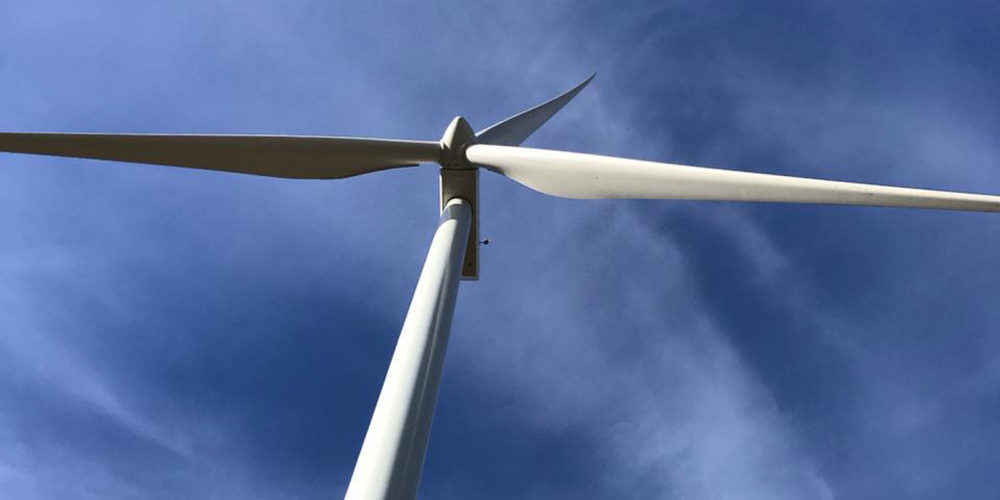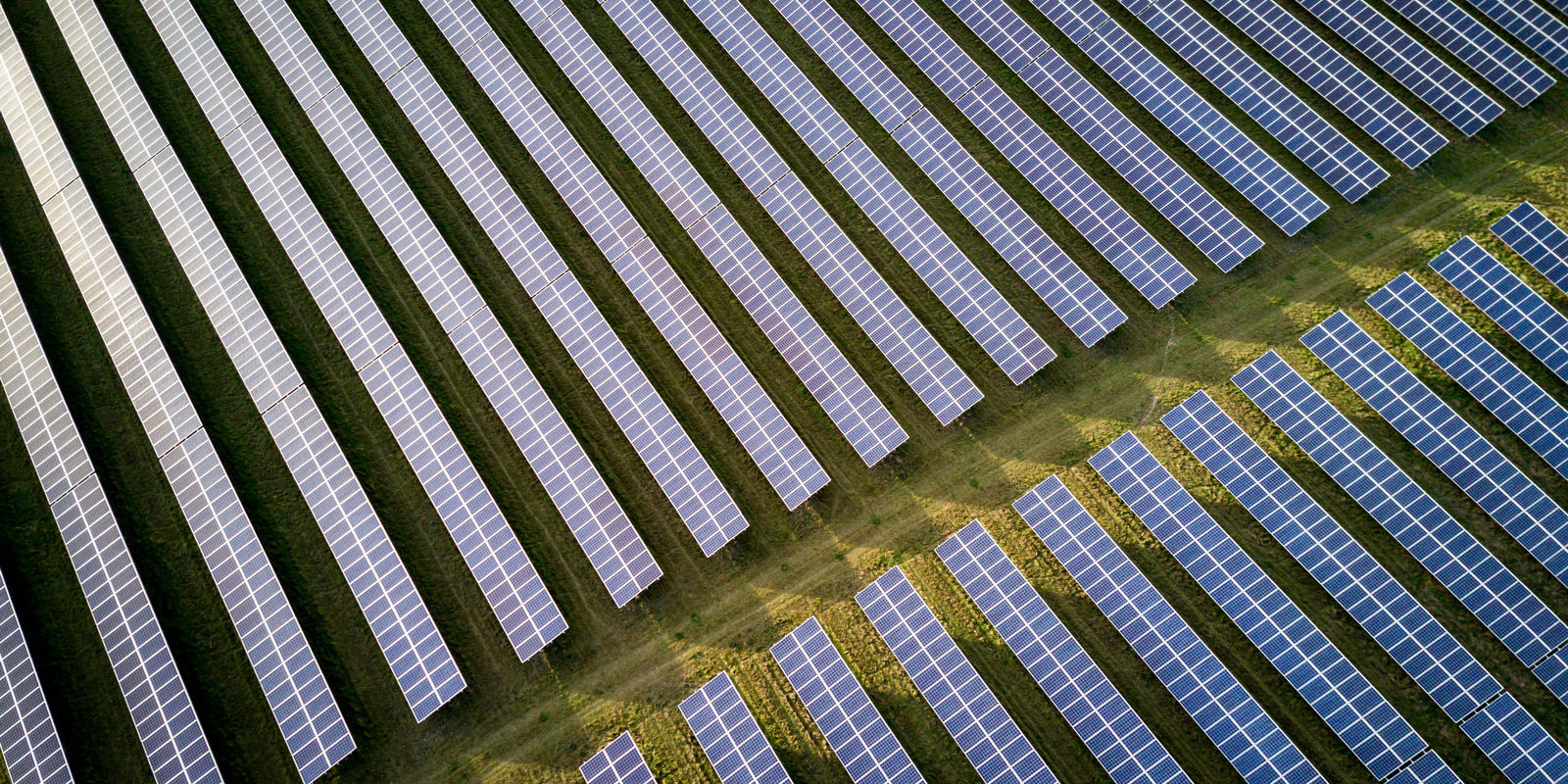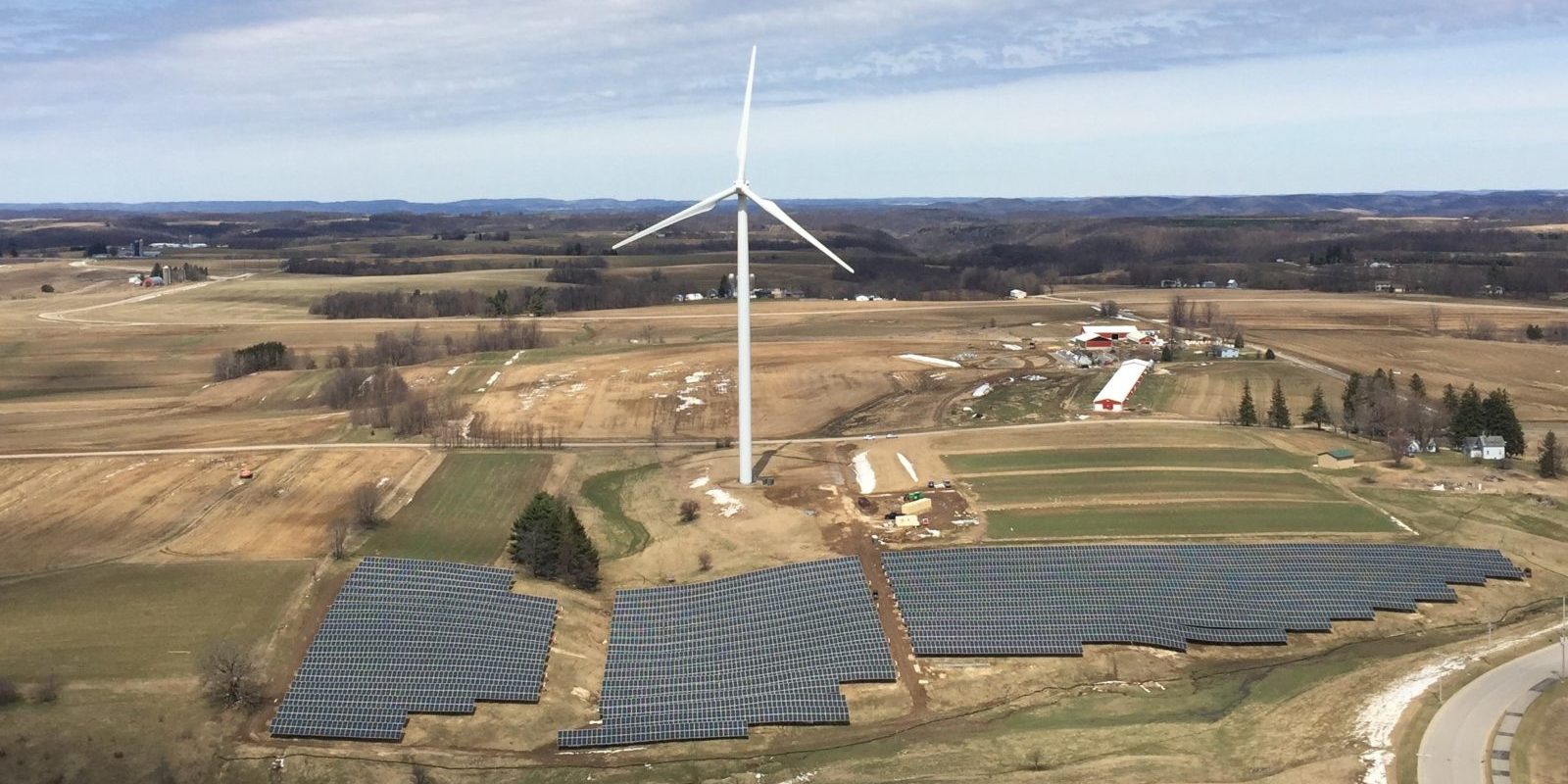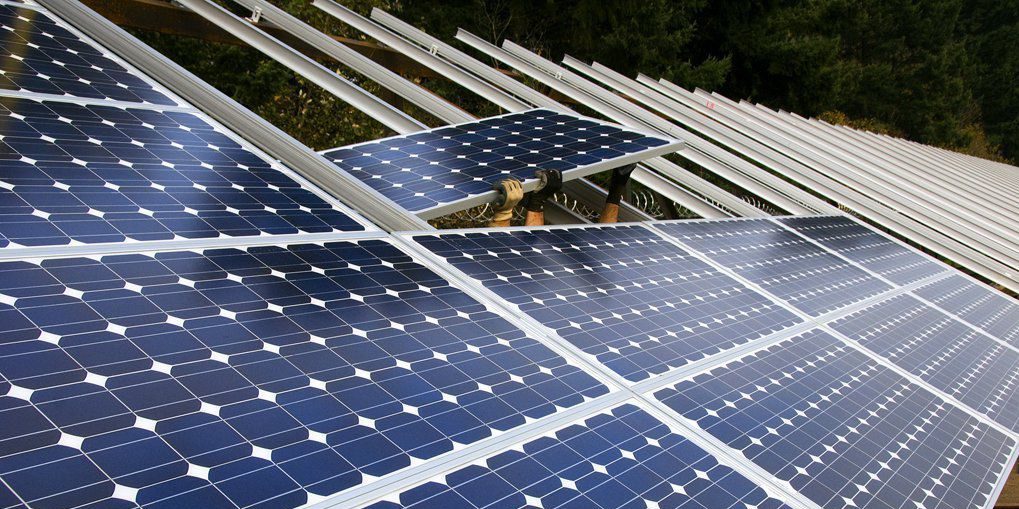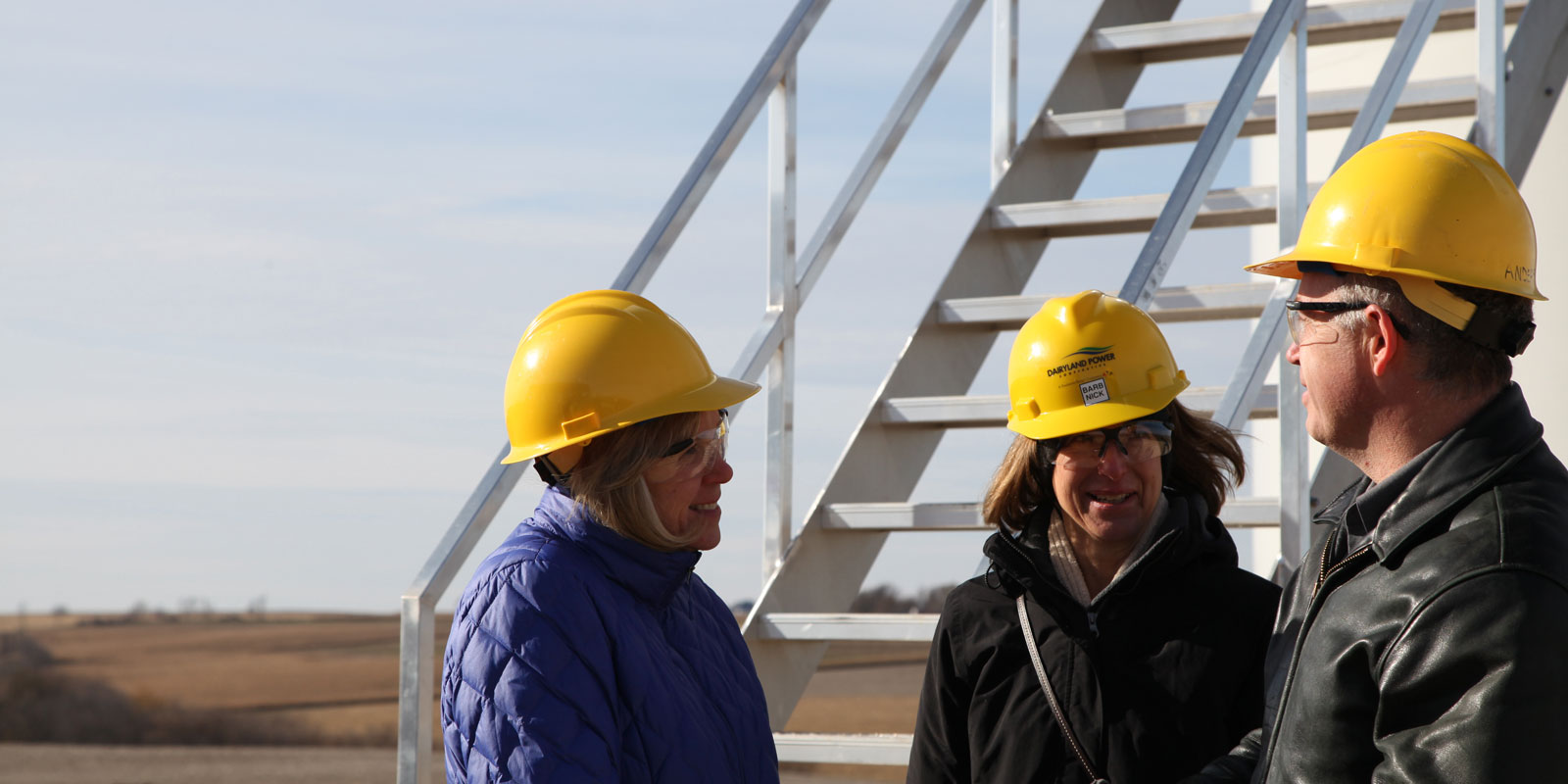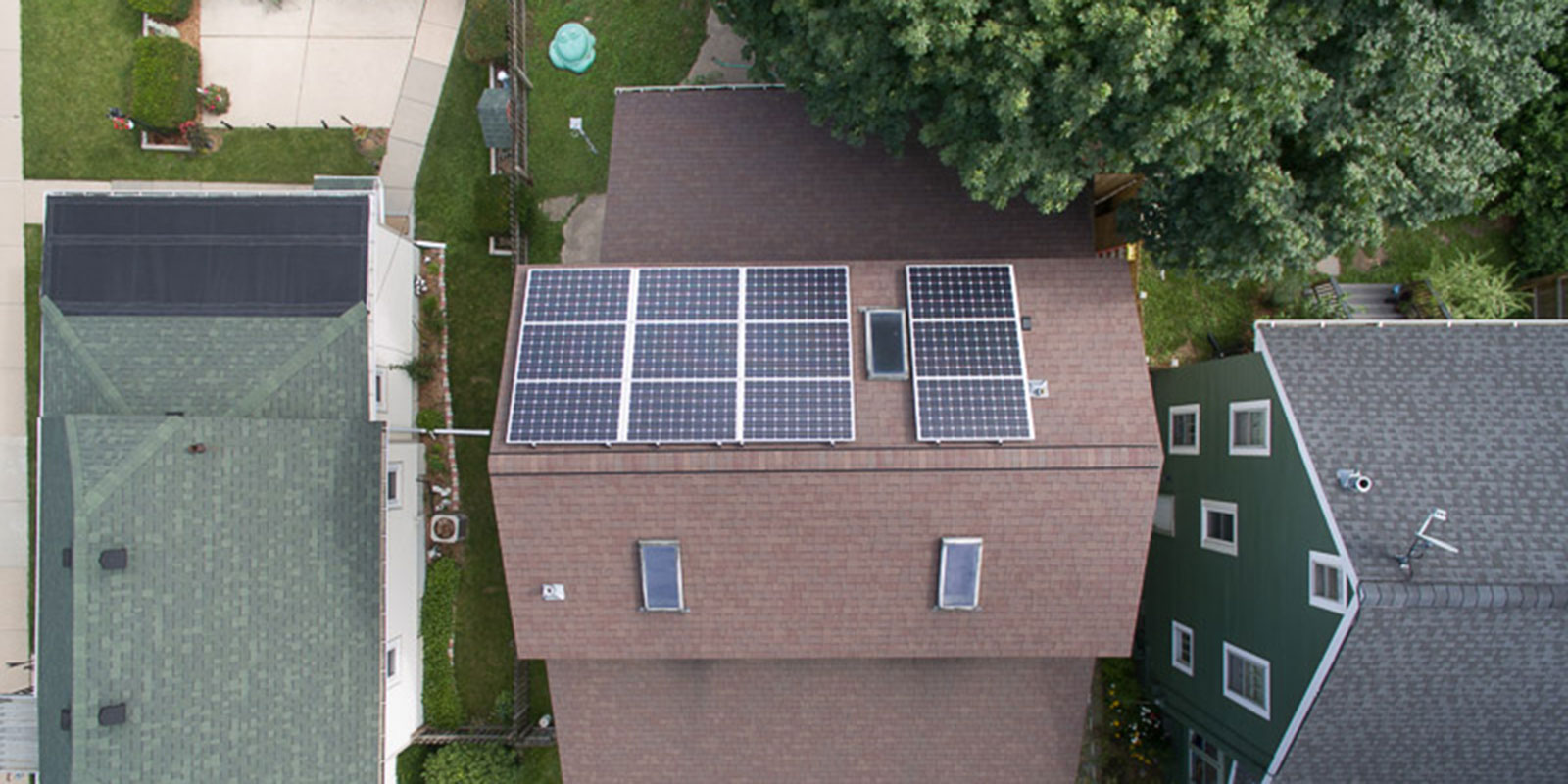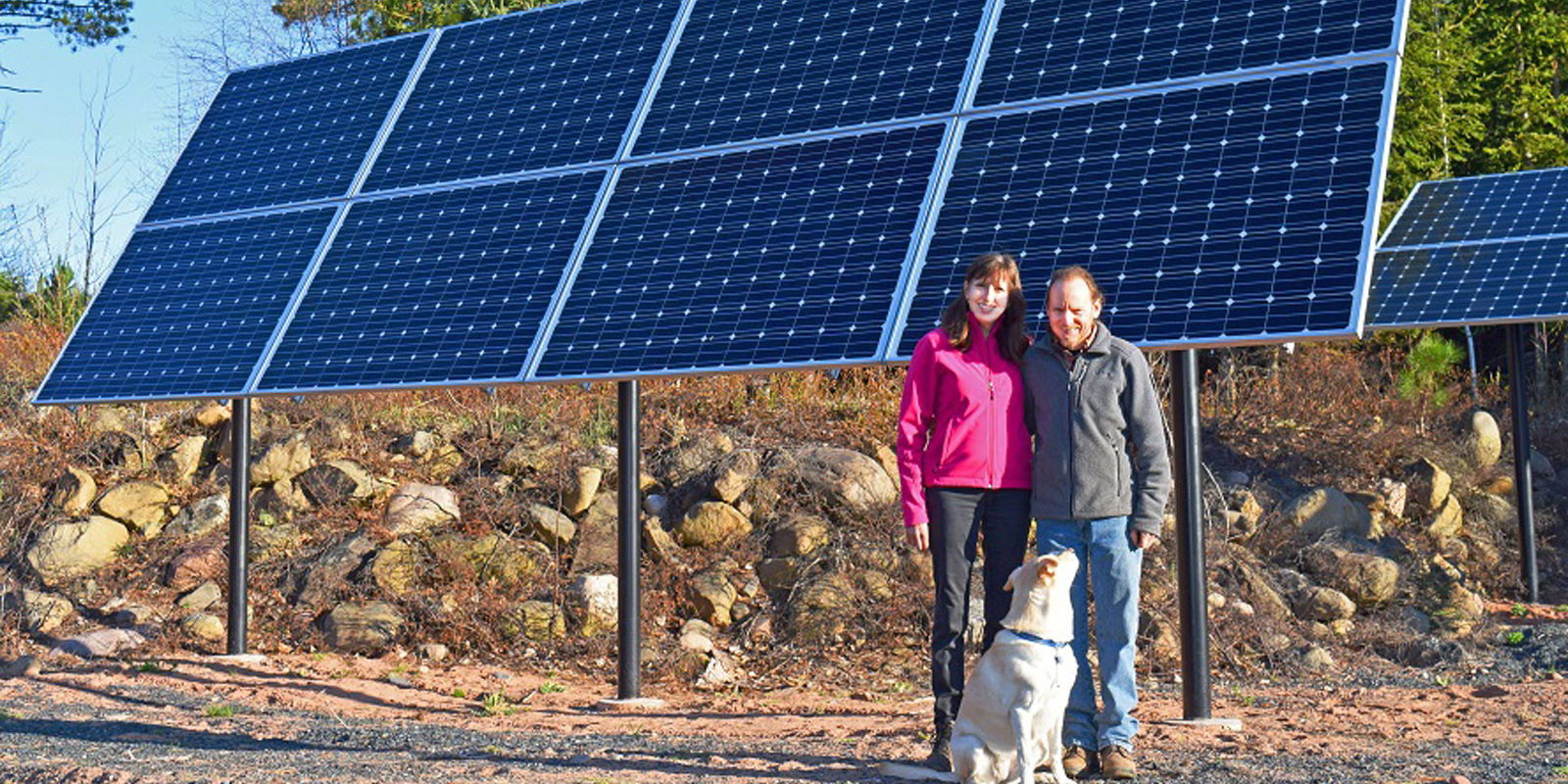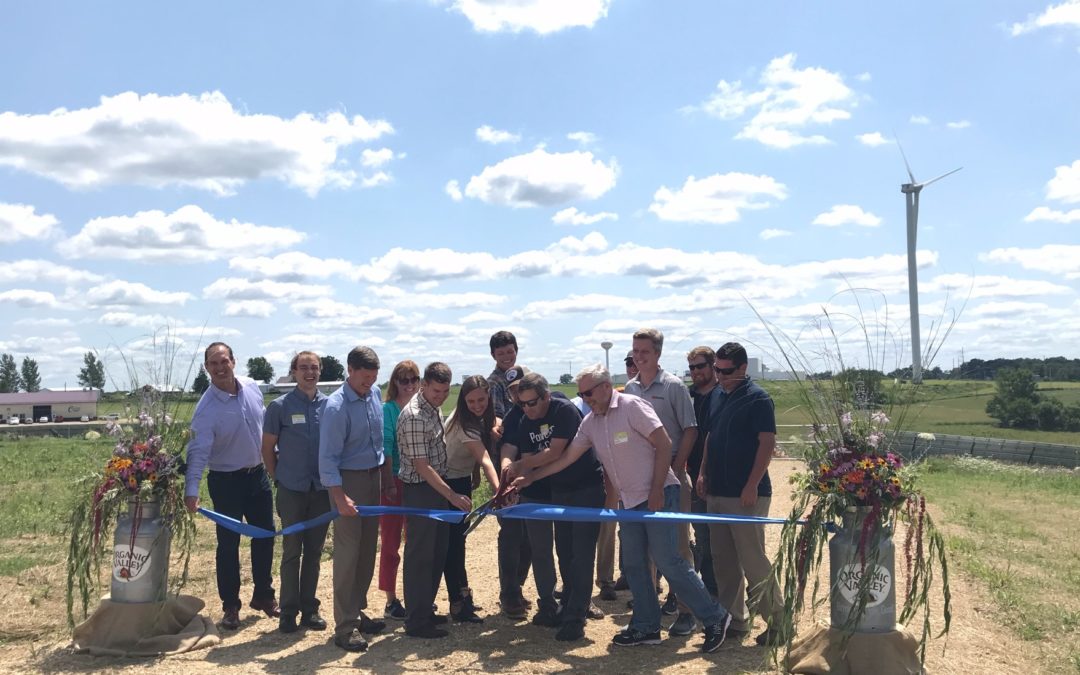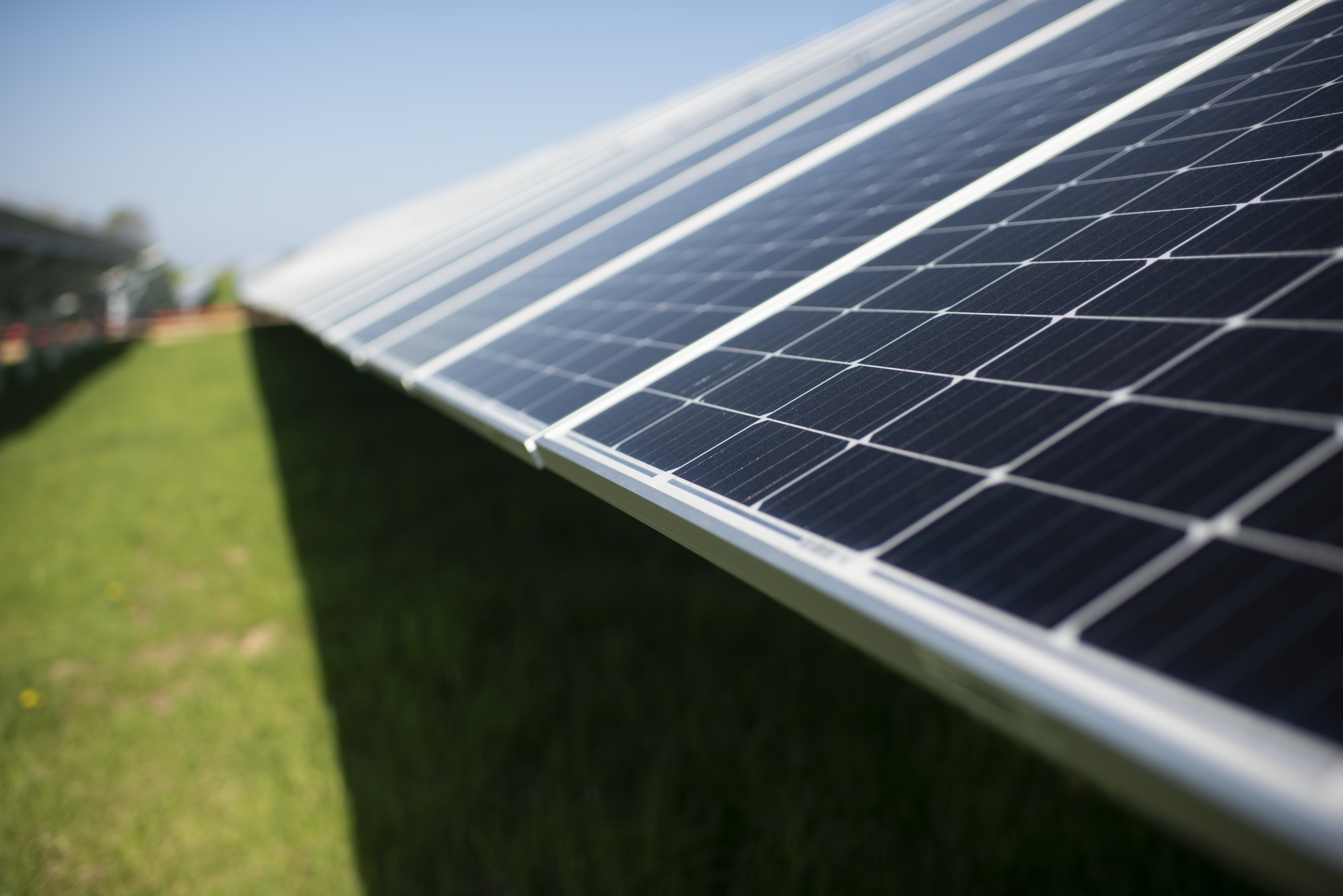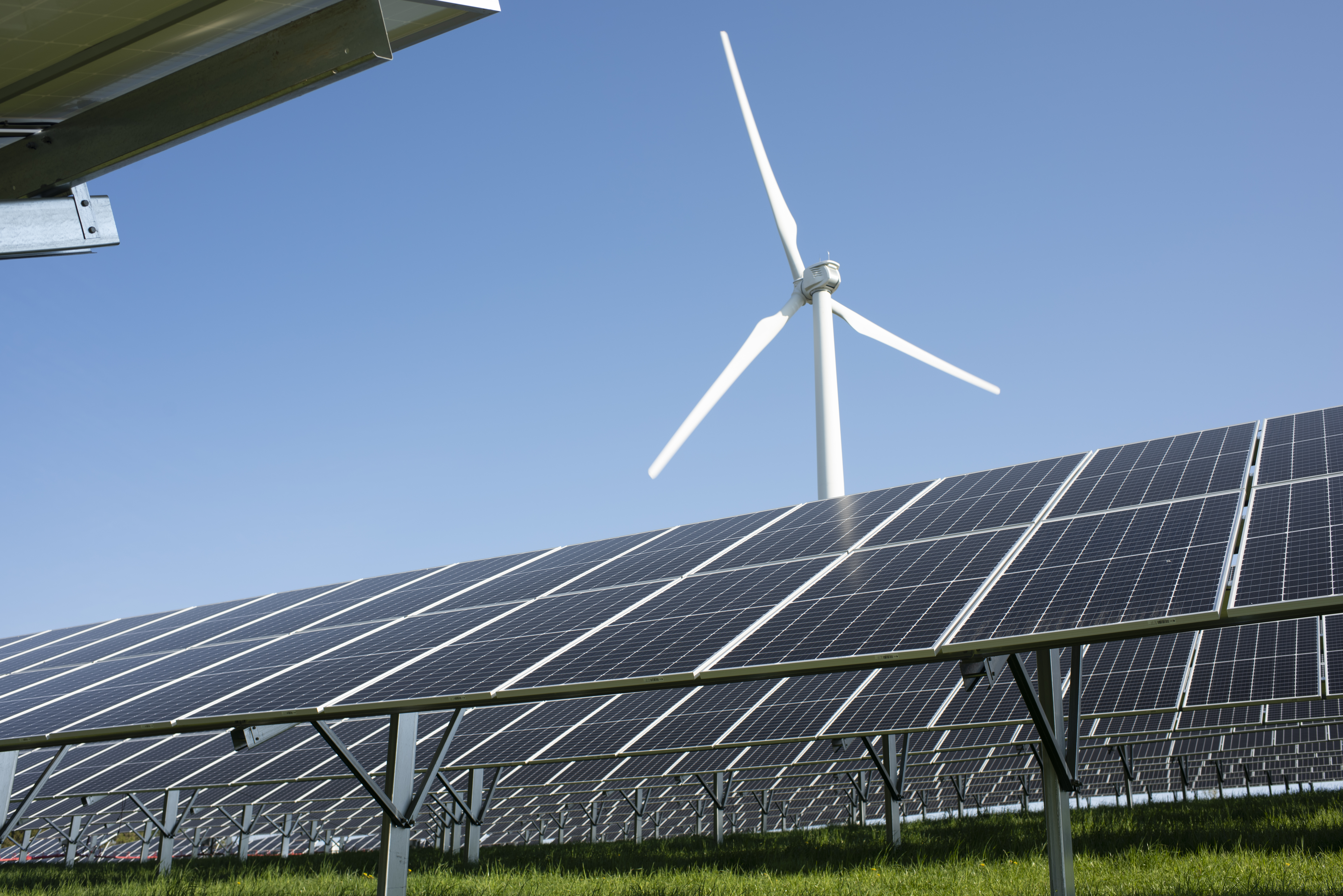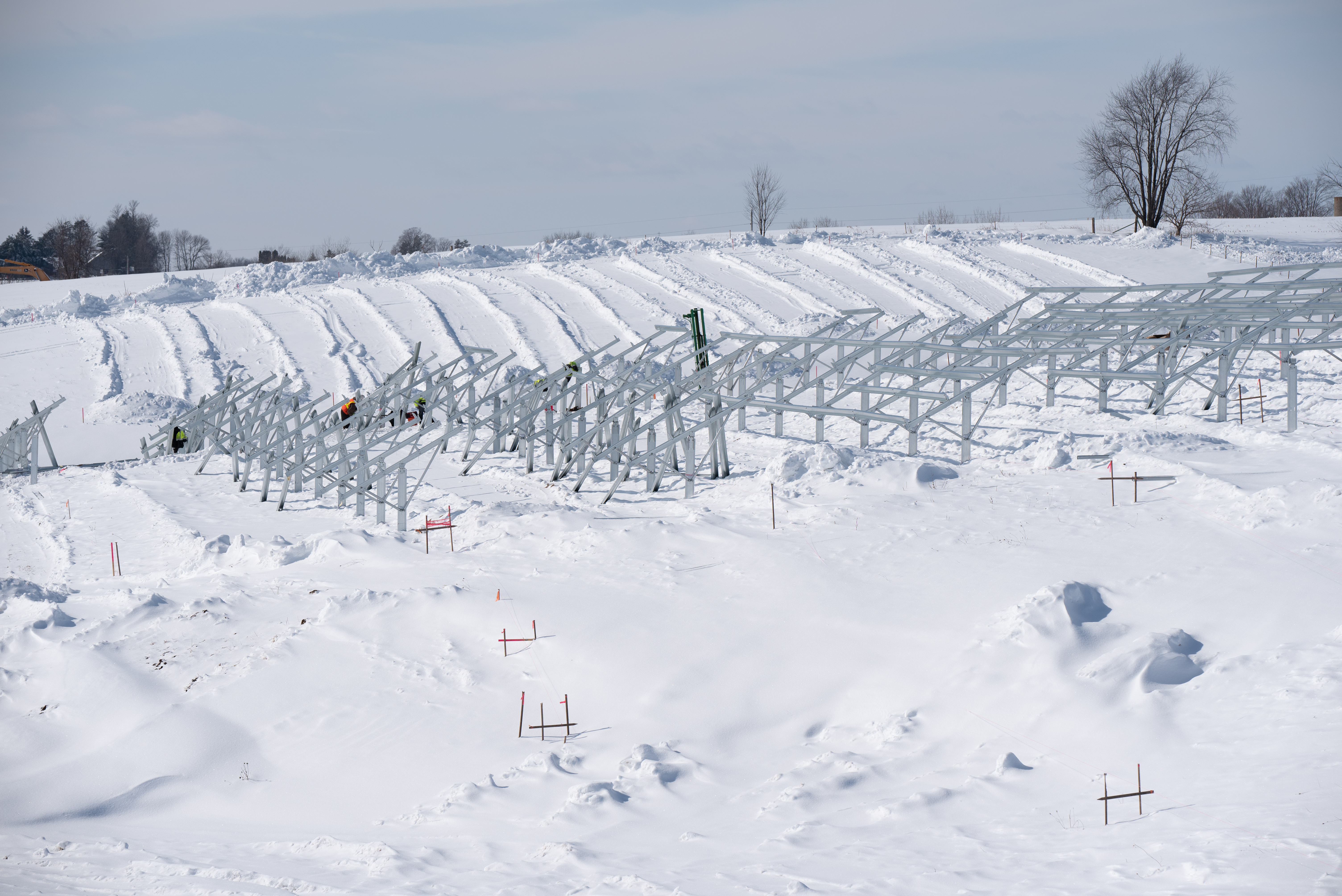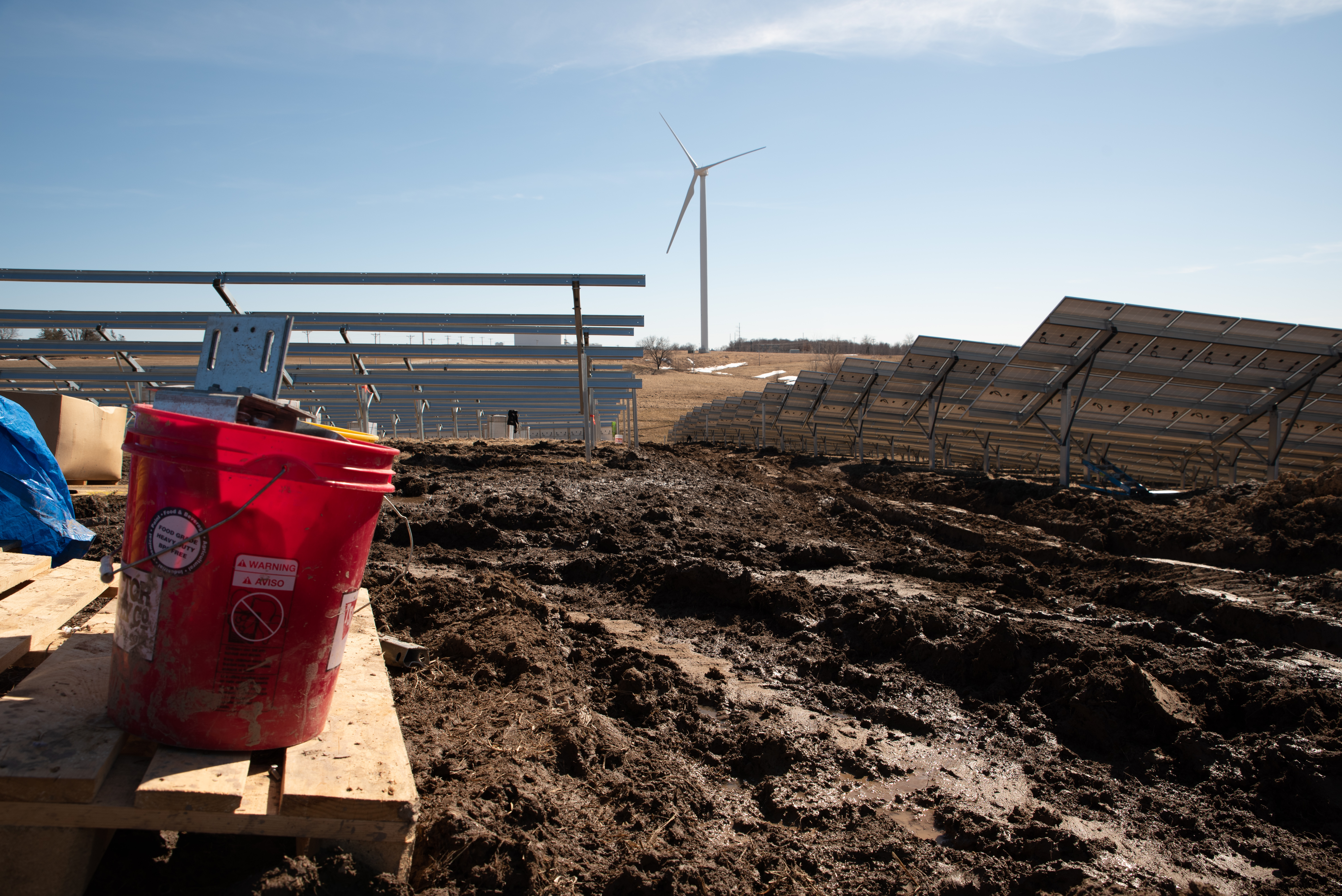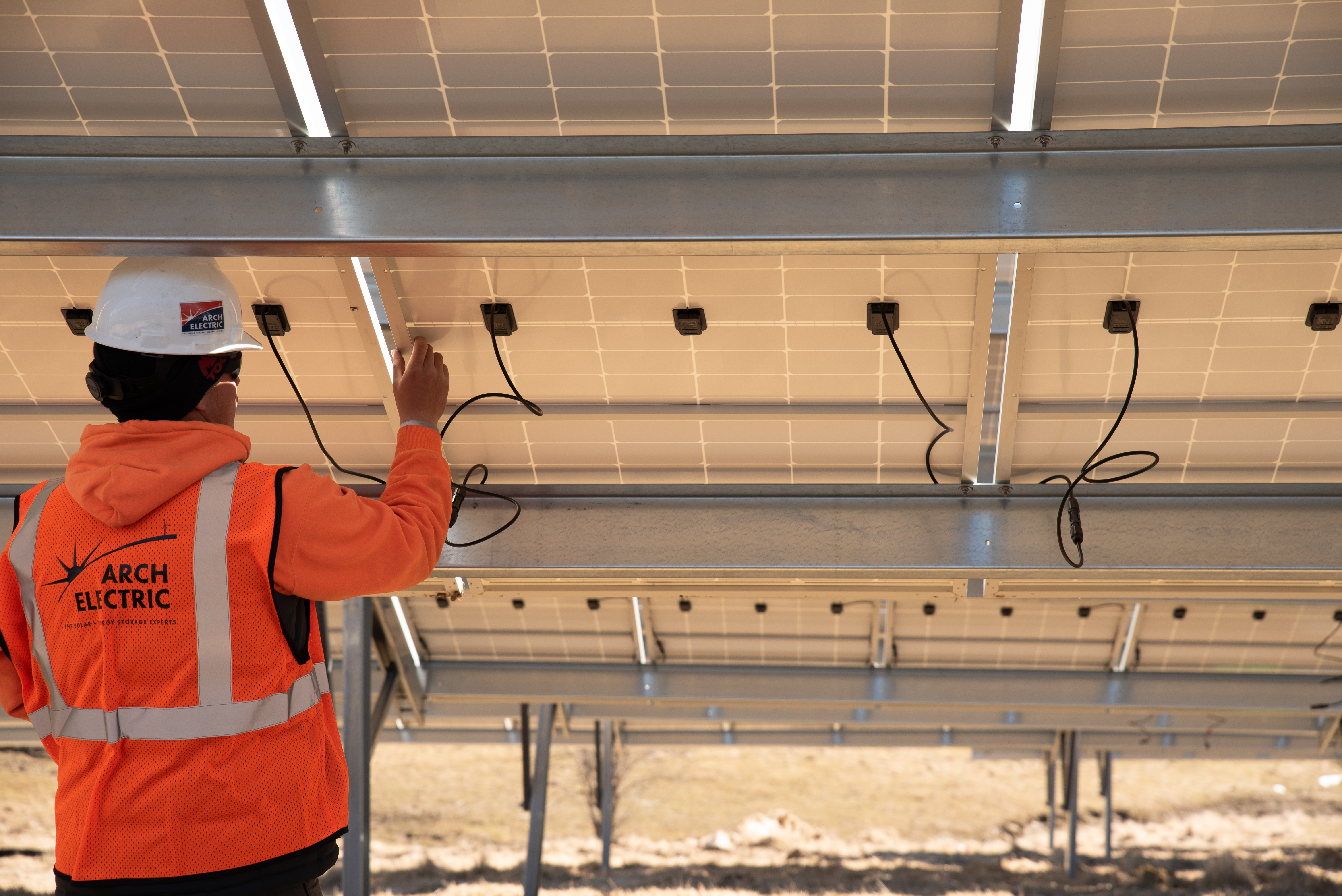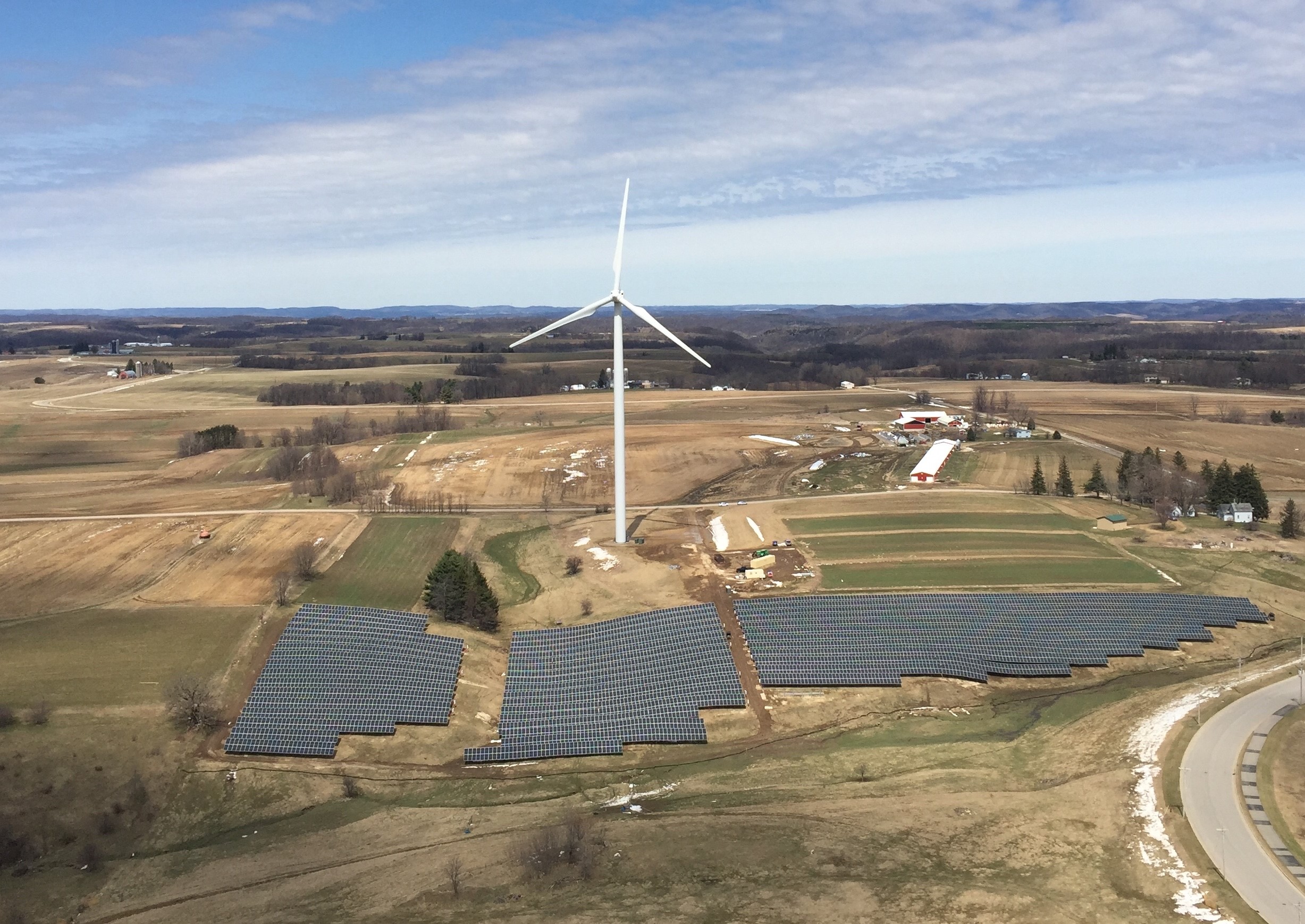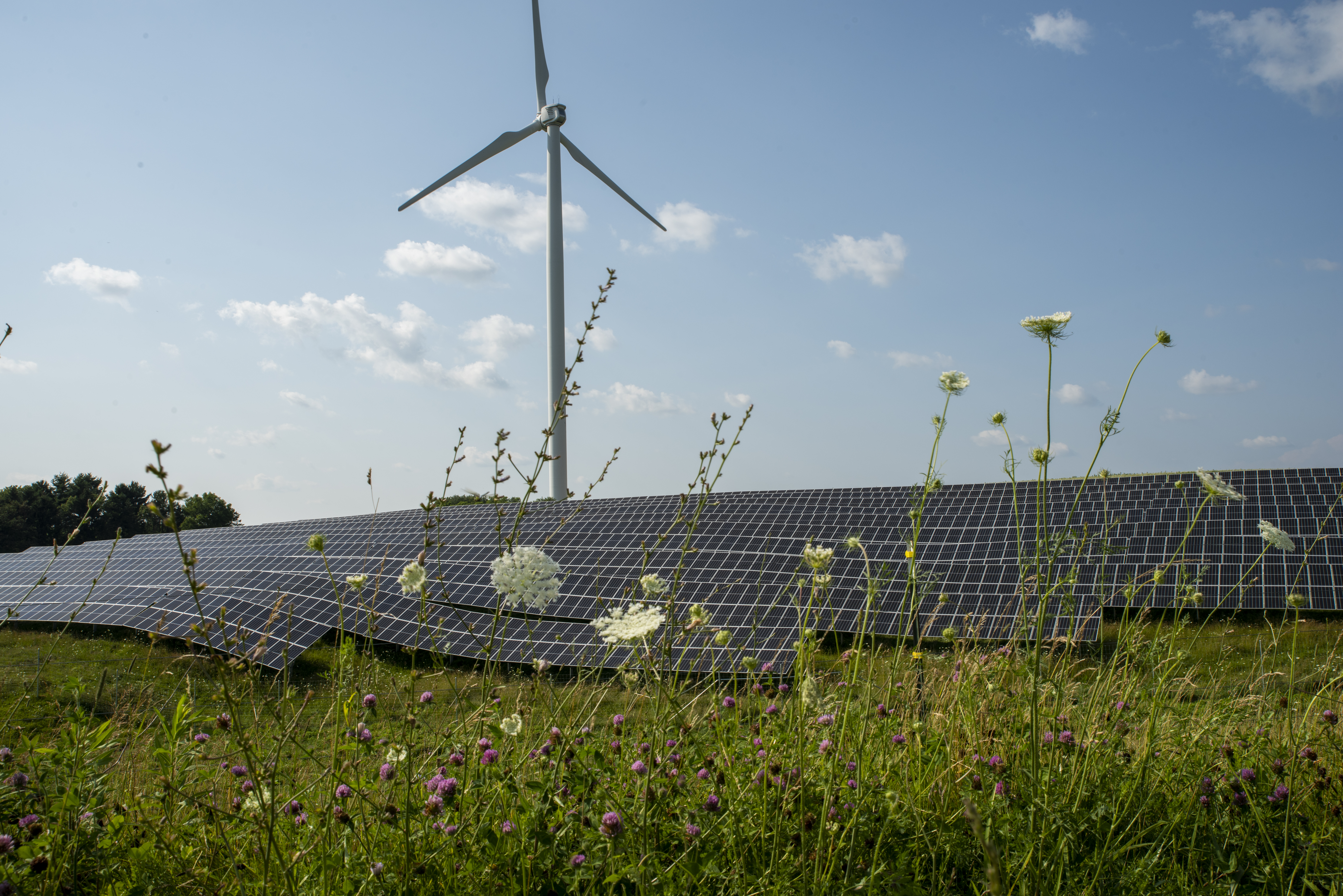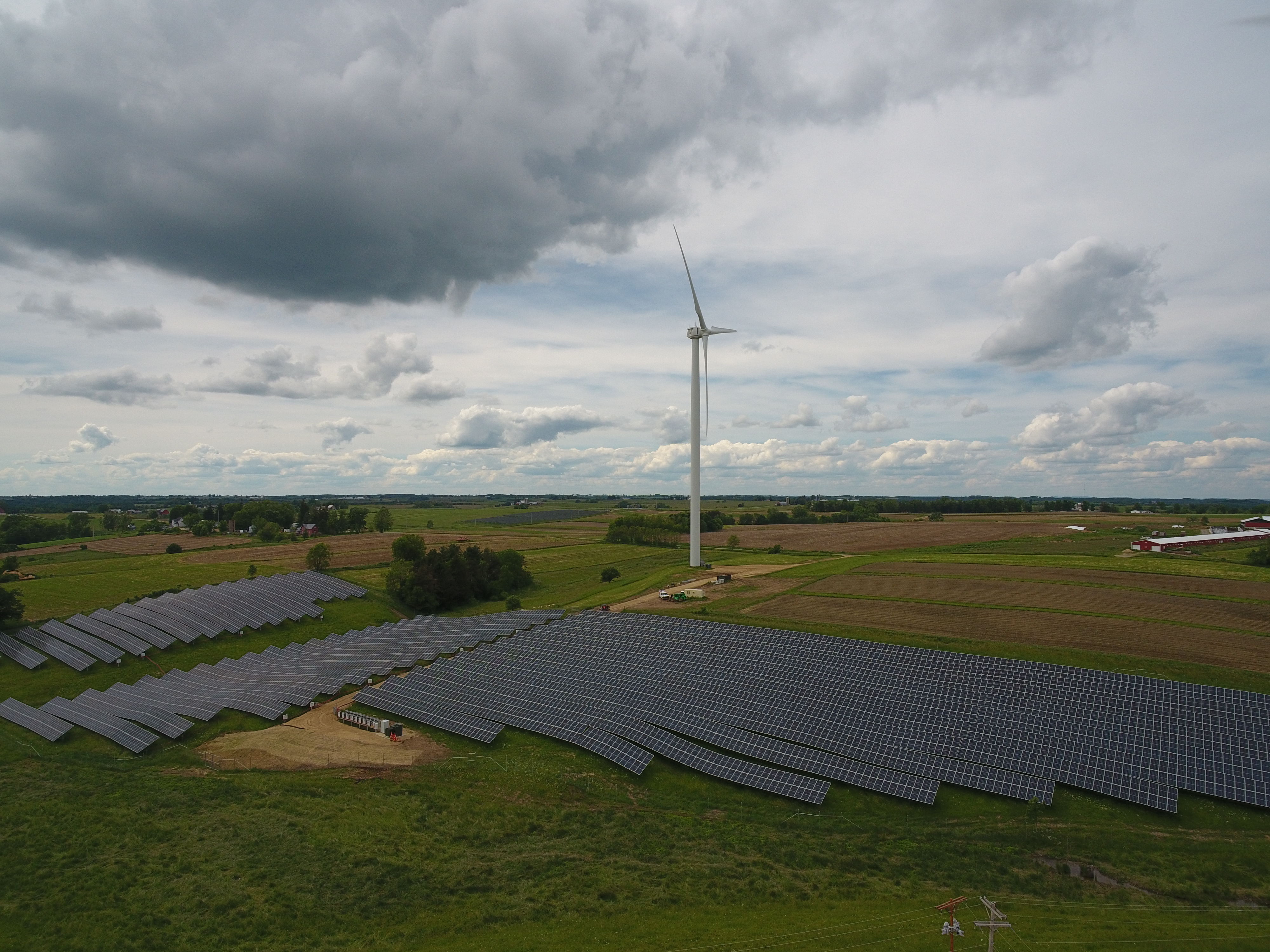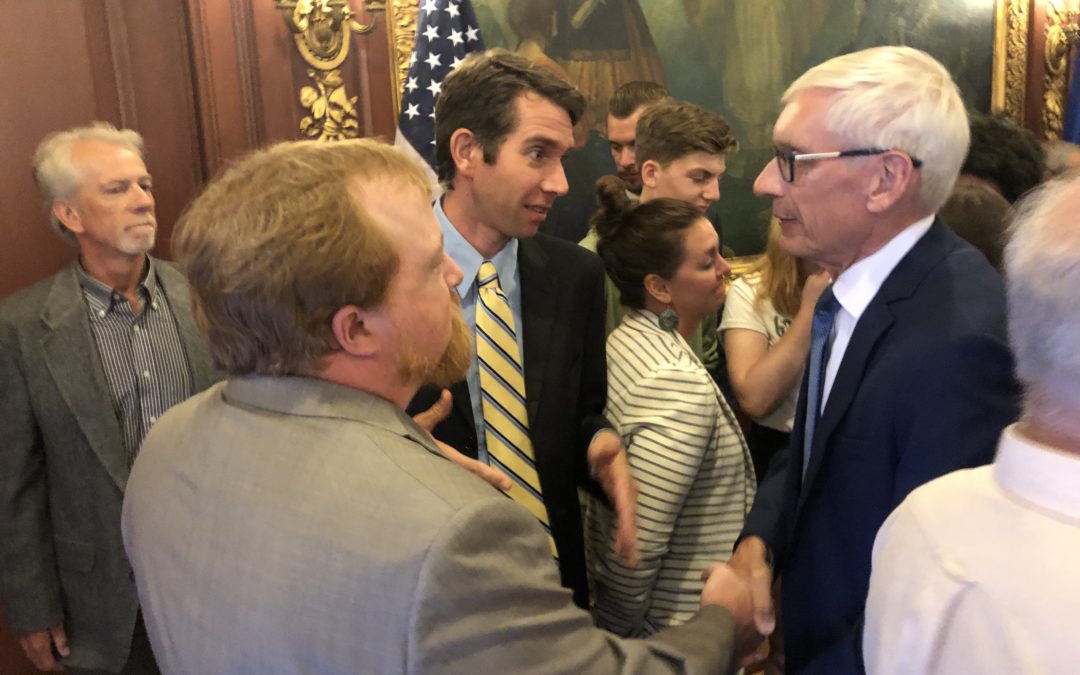
Governor Evers Delivers a Clean Energy Vision for Wisconsin
Last month, Governor Tony Evers delivered an ambitious clean energy vision for Wisconsin, which the editors of the Wisconsin State Journal aptly summarized: “Goal: Carbon-free by 2050.”
Executive Order #38 creates the state’s Office of Sustainability and Clean Energy, and directs the new office to “achieve a goal of ensuring all electricity consumed within the State of Wisconsin is 100 percent carbon-free by 2050.” This office will take the lead in planning and coordinating the Evers Administration’s efforts to greatly increase its own reliance on carbon-free electricity, and develop strategies for expanding clean energy throughout the state. The administration envisions accomplishing these goals through a partnership with other state agencies and state electric utilities.
To demonstrate that this initiative will very much be a team effort, Governor Evers was joined by Lt. Gov. Mandela Barnes, Public Service Commission Chairperson Becky Cameron Valcq and Department of Natural Resources Secretary-designee Preston Cole.
With this order, clean energy becomes again a policy priority, advanced to not only bolster the state’s economy and protect its natural resources, but also promote the health and well-being of its citizenry. What’s also notable about Evers’ initiative is the degree to which it is grounded in climate science. The order frames climate change as an escalating environmental problem that is already doing harm to the state on several fronts. An effective response from state government, therefore, demands aggressive and sustained action. Moving to carbon-free electricity by 2050 certainly qualifies on that score.
Now, an executive order is not the same thing as a law. Executive orders carry no legal weight, which explains why they are narrowly drawn to address matters that are totally within a governor’s control, such as agency priorities. Moreover, they are not binding on future governors and their administrations. That said, we are hopeful that the clean energy actions taken today by this Administration will cultivate, over time, buy-in from state legislators, and that from this order will emerge comprehensive, forward-looking policies that will put Wisconsin on track to becoming a renewable energy leader.
Wisconsin utility commitments set the stage
As audacious as it may appear, Evers’ clean energy goal is actually in line with recent utility commitments to decarbonizing their generation mix. Whether set at 80% or at 100% by 2050, the level of carbon reductions that Wisconsin electric providers have publicly embraced are ambitious, when compared with current levels. In 2018, the percentage of renewable and nuclear generation combined, relative to total sales, was approximately 25%. We’ll probably need to quadruple today’s volume of carbon-free electricity, depending on how much energy efficiency reduces our consumption compared with how much transportation and other direct uses of fossil fuels become electrified by 2050. No matter what happens, this transition will require a concerted and sustained push on the part of every electric provider.
Fortunately for the state’s utilities, there has never been a more propitious time to invest in carbon-free electricity, especially from wind and solar plants, than right now. The capital costs of new wind and solar farms are at their all-time lows, and their operating costs are a fraction of what it costs to buy the fuel for coal and natural gas plants operating today.
The signs that utilities are seizing this opportunity are multiplying. As they move to permanently shutter older and less efficient coal- and natural gas-fired generators, Wisconsin power providers are either busy purchasing more renewable electricity from new plants or building more solar and wind farms for themselves.
Powering up Wisconsin agriculture
In the week following Governor Evers’ Executive Order, ground was broken for the Two Creeks plant, one of the two large solar plants owned by Madison Gas and Electric and WEC Energy. Located a mile from the Point Beach Nuclear Power Plant, this 800-acre solar farm will, by itself, more than double existing solar capacity when completed next year, from 120 megawatts (MW, measured in AC or alternating current) to 270 MW.
That total will more than double again when the 300 MW Badger Hollow solar farm, located in Iowa County, becomes fully operational at the end of 2021. And other Wisconsin utilities, WPPI Energy and Dairyland Power, have signed power purchase agreements from 249 additional megawatts of solar from two projects, both of which are now seeking approval from the Public Service Commission and could also be built in 2020-2021.
Solar farms deliver far more value to the public and the planet than simply megawatt-hours of electricity produced and tons of carbon dioxide avoided. There are also the jobs that go into the construction of these arrays, the revenues that allow farmers to keep farming their land, revenue payments to local governments that host the projects, and the rich habitat for pollinators and wildlife that is created as the soil recharges. Harnessing solar energy for productive purposes has been and will continue to be integral to Wisconsin agriculture.
Meet the 100% renewable energy club
To put an exclamation mark on the last point, one of the most productive actors on the American agriculture scene—LaFarge-based Organic Valley Cooperative—financed the construction of two smaller solar farms in western Wisconsin. These two arrays—one in Arcadia and the other in Cashton—were energized last month and are now sending power into the grid.
That new increment of renewable electricity, when added to Organic Valley’s previous investments in solar and wind power, will enable the cooperative to offset 100% of its electricity use from zero-carbon, renewable sources. Organic Valley is the largest U.S. food brand to have accomplished that feat.
Organic Valley is the second Wisconsin enterprise to achieve a 100% renewable electricity goal. The first was La Crosse-based Gundersen Health System, which achieved that milestone five years ago through a combination of intensive efficiency measures and small-scale renewable power projects, usually off-site. In addition to reducing its energy overhead and passing the savings along to the people it serves, Gundersen wanted also to lead by example, demonstrating to the health care industry that sustainable energy is “healthy, socially responsible and economically beneficial.”
It is not unrealistic to expect that, in the next 10 years, hundreds of businesses and local governments will manage to achieve the same feat pioneered by Gundersen and Organic Valley.
Connecting customers to solar power
When Gundersen pursued energy efficiency to reduce its energy overhead and generate carbon-free electricity as offsets, it had to settle on a path that effectively bypassed the electric providers serving their facilities. But some utilities are no longer content to stand on the sidelines while their customers sponsor new clean energy generation by their own initiative. Newer services such as shared solar and renewable energy sleeve tariffs enable self-selecting customers and utilities to partner on new clean power projects.
For example, Xcel Energy’s Solar*Connect Community program has been particularly successful in eliciting customer subscriptions to purchase electricity produced from new solar arrays in western Wisconsin. While there is an up-front cost to this service, the price of solar power is fixed, and may over time become less expensive than standard electricity, depending on the size and frequency of future rate increases.
It’s worth noting that this is not a required service in Wisconsin, and therefore many residents and businesses here do not have access to a utility-provided shared solar service. Expanding shared solar throughout the state would allow more residents and businesses to benefit from the clean energy evolution.
Wind power returning for duty
Back in 2006, when Wisconsin’s renewable energy standard was raised to its current level, wind power was poised to become the workhorse of the renewable electricity world. It did become so in several states, among them Texas and Iowa. But while wind power supplies 16% of Texas’ electricity and nearly 40% of Iowa’s power, Wisconsin’s rancorous siting and permitting climate has severely hobbled wind’s growth here since 2011. Right now, wind accounts for about 2.5% of electricity produced in the Badger State. Wisconsin utilities own, or buy power from, wind farms in other states which, if included, brings the total amount of wind being credited to Wisconsin customers to about 7% of the state’s electricity consumption.
Wind development activity is beginning to rebound, however, especially in the southwestern part of the state. But it will need to spread beyond the small pockets of the state where the current population of wind farms now operate. With capital costs going down and turbine productivity going up, wind development can occur cost-effectively over a wider swath of Wisconsin than what was considered suitable 10 years ago.
And why not include Lake Michigan among the areas that can host tomorrow’s wind farms? Engineering advances and improvements in foundation design make offshore wind power in waters deeper than 100 feet a feasible option. The ripple effects through the eastern Wisconsin economy would be substantial, especially for companies that manufacture cranes and marine construction vessels. Offshore wind can happen here with the right leadership.
But while the picture for wind power going forward remains uncertain, it’s all systems go for solar power. What is now an affordable resource for power providers is also an equally attractive option for electricity customers of all sizes, classes, and groupings, whether the solar array is dedicated to one home or business or to a school district or local government. Partnerships forming around solar energy are multiplying across the state and much of the nation.
Customer-sited generation growing, but needs to be unleashed
From 2013 to 2018, customer-sited generation was the primary bright spot in Wisconsin’s renewable energy landscape. Customer-sited solar grew from 17 megawatts in 2013 to about 80 megawatts by year-end 2018, and the market continues to grow as the cost of installing solar power has declined. Initiatives like our Solar for Good and Faith & Solar programs have made solar power an affordable option for more than 40 nonprofits across Wisconsin, with 30 more working on projects this year.
But we know there are speed bumps, and it’s past time to fix them. The 20 kilowatt net metering threshold set by most of Wisconsin’s utilities often and unnecessarily limits the ability of customers, especially larger businesses and nonprofits, to supply themselves with renewable power. Generators that exceed the net metering threshold are penalized for exporting power to the grid.
This situation has especially been hard on Wisconsin’s biogas generators. After their initial contracts expire, biogas generators face the prospect of a 60% reduction in revenue flow. Many have already stopped generating electricity as a result, and are now flaring biogas instead.
With Wisconsin utilities now clearly moving towards building renewable power and retiring coal plants, it’s time to equalize the treatment of customer-sited renewable generators relative to large solar farms. If utilities need more daytime power capacity, they should credit distributed generators like solar and biodigesters at the same level that is accorded to their own renewable power plants. Our net metering rules need to be strengthened to capture more of the great potential and benefits that we know distributed generation brings to Wisconsin.
It’s also time to enable financing of clean energy systems, such as third-party leases and power purchase agreements, so that more low- and moderate-income Wisconsinites can take advantage of “pay as you go” solar energy financing options which are commonly available in more than half of the United States.
The value of partnerships
A particularly powerful example of solar partnerships can be found in the Ashland-Washburn-Bayfield area. Operating on a shoestring over its four-year history, Cheq Bay Renewables, an all-volunteer organization, has designed and developed several community-scale projects notable for their affordability and popularity. One of these is a solar group buy program, now in its second year, that has yielded nearly one megawatt of new capacity serving area homes, farms, and small businesses.
Supported initially by a $10,000 Solar in Your Community Challenge grant from U.S. Department of Energy (USDOE), the organization’s latest venture is set to deliver more than a dozen solar systems to schools, county-administered housing, wastewater treatment plants, and other public facilities in the Washburn-Bayfield area. Cheq Bay’s next project after that will put solar systems on three tribal buildings serving the Bad River Band of Lake Superior Tribe of Chippewa Indians. Half the funding for Bad River’s solar systems will come from U.S. DOE.
Through a combination of creativity, resourcefulness, and hard work, Cheq Bay Renewables has been the catalyst for the renewable energy transformation occurring in northern Wisconsin. Though the progress it has made thus far is nothing short of amazing, it wouldn’t be happening without all the partnerships that Cheq Bay has meticulously cultivated with local governments, federal and state agencies, electric providers, and sustainable energy professionals.
Partnerships like these are essential for getting the job done. And Executive Order 38 sets the stage for a new round of partnerships and collaboration to achieve the bold vision for Wisconsin’s clean energy future that Governor Evers and his Administration now embrace. From what’s happening on the ground, we know many initiatives are delivering results today, and these bright spots will be the foundation to creating a statewide clean energy success story.

